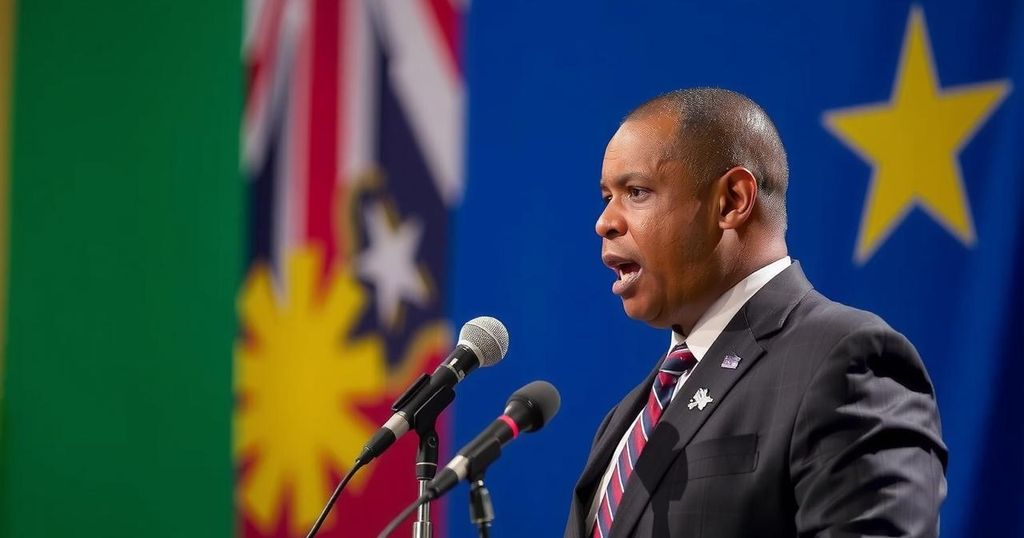Mauritian Prime Minister Pravind Jugnauth conceded defeat in the recent elections, setting the stage for Navin Ramgoolam to potentially return as prime minister. The elections have been overshadowed by a wire-tapping scandal and raised concerns about governance amid economic challenges. Voter turnout was high at around 80%.
In a significant political shift, Mauritian Prime Minister Pravind Jugnauth publicly acknowledged his defeat in the recent legislative elections, paving the way for opposition leader Navin Ramgoolam to potentially reclaim the prime ministerial position. While official results are still pending, Jugnauth’s concession indicates that Ramgoolam’s Alliance of Change coalition is poised for victory. The elections, marred by a wire-tapping scandal, brought forth pressing issues concerning economic conditions faced by Mauritians, with a notable voter turnout of approximately 80%.
The political landscape in Mauritius has been dominated by familial dynasties since its independence from Britain in 1968, with both Jugnauth and Ramgoolam hailing from prominent political families. Ramgoolam has previously served as prime minister and has emphasized the necessity for economic improvement amidst rising cost-of-living concerns. These elections came shortly after a historic agreement regarding the sovereignty of the Chagos Islands, showcasing both domestic issues and international diplomacy as crucial factors during the electoral campaign.
The recent electoral outcome marks a pivotal transition for Mauritius, reflecting the electorate’s desire for change amid socio-economic challenges. With Ramgoolam’s anticipated return to leadership, it remains to be seen how the new government will address prevailing issues of governance and corruption while fostering economic stability. The strong voter turnout further underscores the democratic engagement of the Mauritian populace, particularly in a nation recognized for its political stability in the region.
Original Source: www.seychellesnewsagency.com






